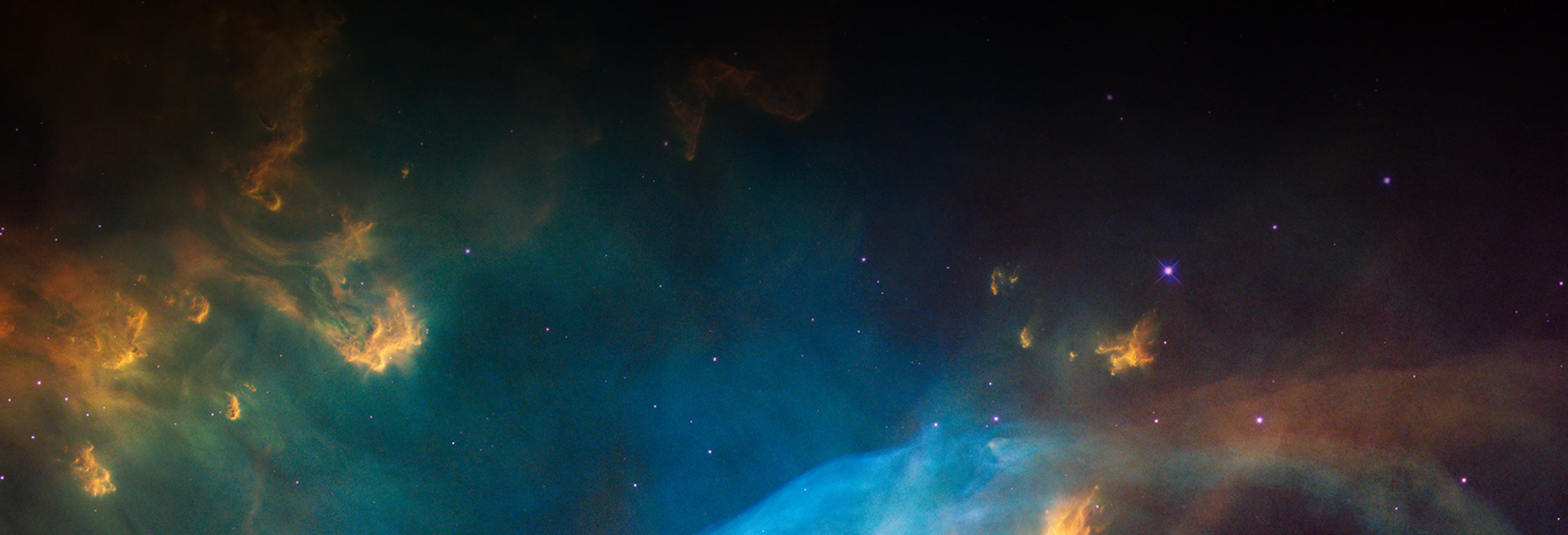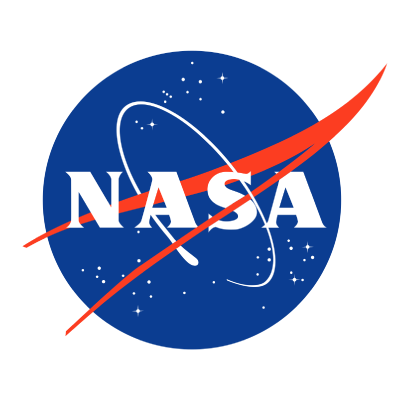Policies
The Astromaterials Data Archive archives, publishes and makes accessible user-contributed data and other digital content from Planetary Science research. When using Astromaterials Data Systems' repository services your dataset will be reviewed by curators with domain-specific knowledge, as outlined below. By submitting your dataset, you hereby agree to and accept the following policies:
Repository Scope
The Astromaterials Data Archive is domain-specific for astromaterials sample analytical data. Upon curatorial review, if the submitted data type is considered outside of the repository scope, your data can be rejected from publication.
Please check with our curatorial staff before you start your data submission if your data are within the scope of the Astromaterials Data Archive.
Whenever possible, our staff will provide alternative repositories that would best suit the data type.
File Formats
The Astromaterials Data Archive offer a data submission template which is tailored to specific data types.
We highly recommend the use of the template to ensure reproducibility of the data and easy conversion to machine-readable formats.
The complete list of accepted file formats can be found here. If the data type can not be aligned with the pre-existing template, it should at least be supplied in one of the following formats:
| Generic Resource Types | Recommended Format(s) | Additional Format(s) | Comment(s) |
|---|---|---|---|
Tabular Data | Comma Separated Values (.csv), Tab Separated Values (.tsv), netCDF (.nc), OpenOffice Calc (.ods) | Microsoft Excel (.xls or .xlsx), JavaScript Object Notation (.json) | ASCII or UTF/UTF8/UNI See guidance for using NetCDF |
Text | Portable Document Format/Archival (.pdf), OpenOffice Document (.odt), ASCII (.txt) | Microsoft Word (.doc, .docx) | Text documents must conform with Section 508 Standards. |
Metadata | ISO 19139 (.xml) Geospatial Metadata | FGDC Content Standard for Digital Geospatial Metadata (CSDGM), NASA Directory Interchange Format (DIF), Hierarchical Data Format (.hdf or .h5), Resource Description Framework (.rdf) | The preferred representation of metadata in these standard formats is to be in eXtensible Markup Language (xml). |
Images | Portable Network Format (.png), JPEG (.jpeg), Tagged Image File Format (.tiff) | BitMap (.bmp), Graphics Interchange Format (.gif), High Efficiency Image (.HEIC) | |
Miscellaneous | Zip (.zip), Webpage (.html), Jupyter Notebook (.ipynb), Matlab (.m), PowerPoint (.ppt or .pptx) |
Metadata
Our repository strives to deliver the best quality metadata for datasets. Our curators will review metadata associated with your submitted data, as outlined below.
The completeness and correctness of the (meta)data is the responsibility of the contributor.
| Metadata Type | Required Metadata | Optional Metadata | Comment(s) |
|---|---|---|---|
Data Source | Title | Title is concise and describes the dataset content. | |
Abstract | Abstract uses full sentences to describe what measurements were done, the locations, and for what purpose. Avoid abbreviations & acronyms. | ||
Sample | Sample name | Use of the International Geo Sample Numbers (IGSN) is recommended. | |
Sample Descriptors | Include classification, age, and any additional information on how, where and when the sample was collected. | ||
Data and Methods | Each analyte (parameter) in the data table(s) is linked to a sample name or number. | ||
All analytes and units are clearly stated and defined. | Avoid or define abbreviations. Relevant standards and reference measurements should be included when possible. | ||
Technique-Instrument-Laboratory | Use these metadata to define the method code for each analyte (parameter). | ||
Compilation Dataset | Reference sheet/tab with full citations of all referred publications. | ||
Related Publication Information | Authors, Year, Title, Publisher, (Status) | Please include a citation or DOI for the manuscript in which the dataset will be used. If your manuscript is not published yet, include the status (in prep., submitted, in review, accepted). | |
Funding Information | NASA or other award numbers | This will allow tracking of datasets by Award Number and show compliance with Data Management policies of funding agencies. |
Publishing Timeline
The Astromaterials Data Archive is a curated file repository, you will receive your dataset DOI only after your files and submission have been reviewed and accepted. Please keep in mind that this entire process can take up to two weeks. Complete datasets following all requirements are often published within a few business days.
Data Registration with DOI
Datasets in the Astromaterials Data Archive can be identified, shared, published and cited by using a Digital Object Identifier (DOI). The Astromaterials Data Archive provides archiving services through IEDA, a publication agent with the DataCite consortium.
How to Cite Astromat
Astromaterials Data Archive/Repository Data Citation
- Reference the data product with its DOI in the references section of your publication.
- Format the citation: Author(s) (Publication Year): Title. Publisher. Identifier. Data Accessed.
- Example: Foustoukos, D., 2023. EA-IRMS Analysis, H for the sample OREX-501034-0; OREX-501035-0; OREX-501036-0; OREX-501037-0;OREX-501040-0, Version 1.0. Astromaterials Data Archive. https://doi.org/10.60707/6c5n-e486 Accessed 2024-07-01.
Access to Data
Access to the Astromaterials Data Archive is open and free but you may not circulate or publish materials obtained from this site unless you adhere to the licensing requirements as stipulated by the provider of the dataset(s).
Long-Term Archive
The Astromaterials Data Archive guarantees long-term availability of its content through NASA Mission Cloud Platform (MCP). MCP is part of the NASA Managed Cloud Environment (MCE) that adds government service delivery to cloud services with centralized service management plus security and follows the Amazon Web Services (AWS) Shared Security Model.
Licenses
Use of digital materials obtained from the Astromaterials Data Archive is licensed under varying licenses that can be selected by the data contributor. The license that is applicable for a given dataset can be found on its landing page.
Contributors have 4 data file license options to choose from for preserving and enabling continuing access and use of data and related information. Selecting an open access license (marked with an asterisk, below) is strongly encouraged.
*Creative Commons Zero 1.0 Universal Public Domain Dedication (CC0)
*Open Data Commons Public Domain Dedication and License (PDDL) v1.0
*Creative Commons Attribution 4.0 International (CC BY 4.0)
Creative Commons — Attribution-ShareAlike 4.0 International (CC BY-SA 4.0)
Updating and Deprecating a Dataset
Updating a Dataset
Once submitted but prior to publication, the dataset and corresponding metadata can be updated by the data contributor via request to the curatorial team. This includes the addition of or replacement of data files submitted as part of the original data submission.
Deprecating a Dataset (“Unpublishing”)
Once published, the dataset and corresponding metadata cannot be unpublished or deleted. Published data refers to any dataset with a published DOI in the Registered or Findable state.
Published datasets can be deprecated at the request of the data contributor or after an evaluation by the repository curatorial team. The DOI of a deprecated dataset remains published, but data files are no longer downloadable. The deprecated dataset is then mapped to new dataset(s) where appropriate.
Reasons for deprecation include the publication of incorrect or fraudulent data, metadata, or corresponding information. The data contributor will be notified if deprecation is required.
Updating DOI States
Upon request from the data contributor*, the DOI of a published dataset can be updated between the DOI states ‘Registered’ and ‘Findable’. This update will change the availability and discoverability of your published dataset (refer to the section below, “DOI States Explained,” for more information on DOI states and the corresponding availability of metadata). If you are in need of submitting this type of request, please contact the Astromat team. Please note that once published, a dataset cannot be unpublished.
*An author affiliated with the dataset may submit this request. The data contributor will be notified by the Astromat team prior to the completion of the request.
DOI States Explained
Once a dataset has been published, the DOI exists in one of two states - Registered or Findable. Published DOIs can be updated between the Registered and Findable states as needed, and updating a DOI state will change the availability and discoverability of a dataset. See DataCite DOI States explanation for more details.
Registered: DOI is registered with the global Handle System but metadata is not openly available. Discoverability: Dataset and metadata do not appear in ADA search results but are resolvable, published, and downloadable; metadata is not findable through DataCite Commons or DataCite Public API; metadata are findable via the DataCite Member API (authentication required).
Findable: DOI is registered with the global Handle System and metadata is openly available. Discoverability: Dataset and metadata appear in ADA search results and are resolvable, published, and downloadable; metadata is openly available in the DataCite Commons and retrievable via the DataCite Public API.
Need Help Submitting Your Data?
Get in touch with an Astromat curator if you have questions or concerns prior to submission.






